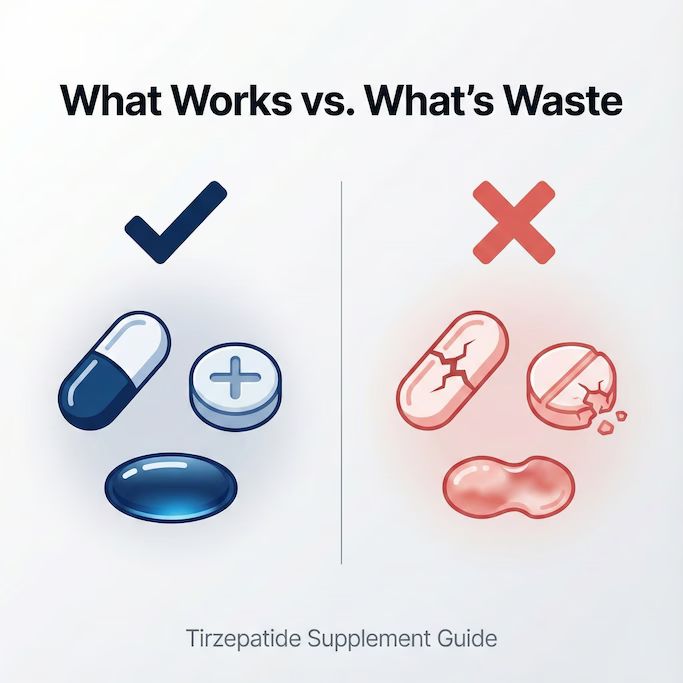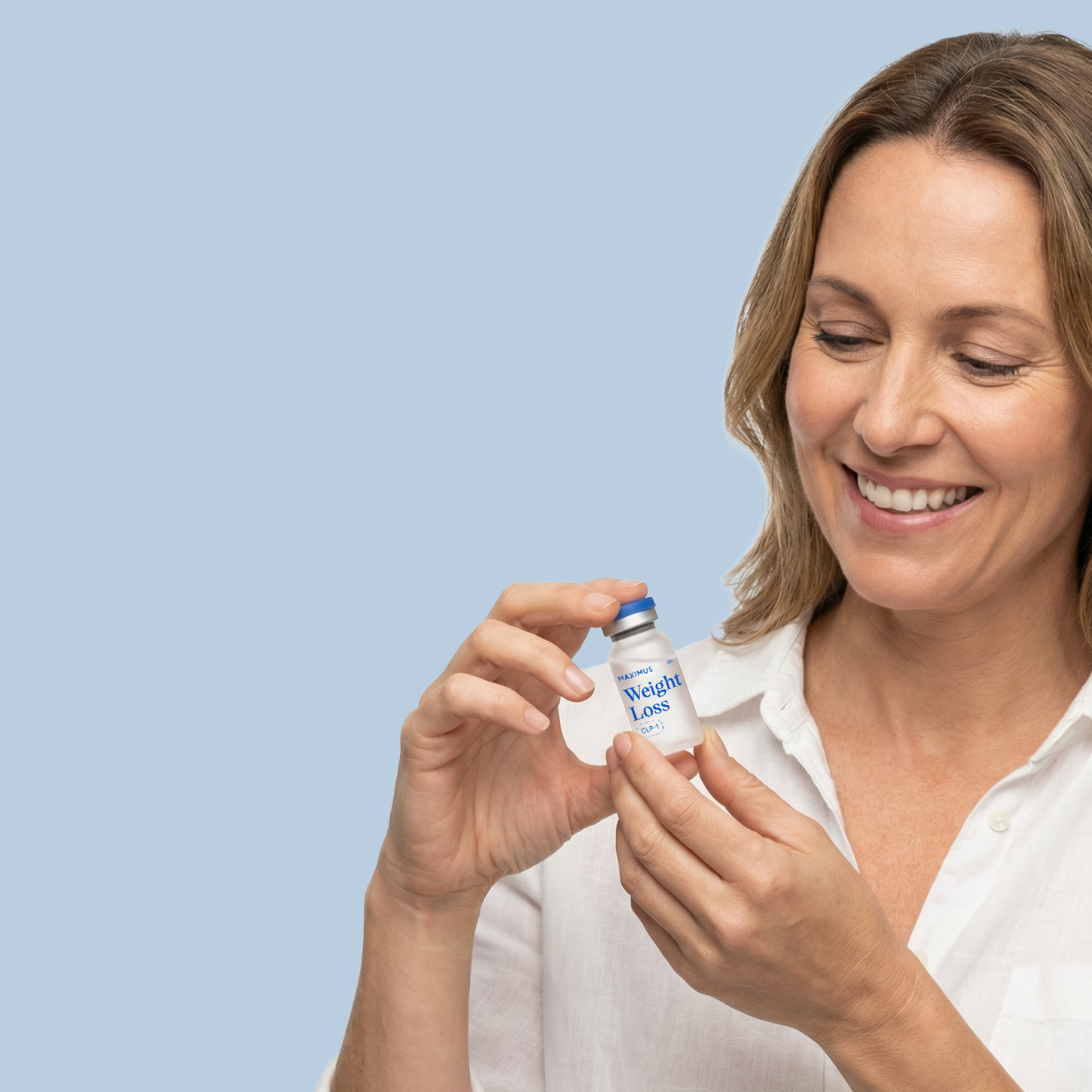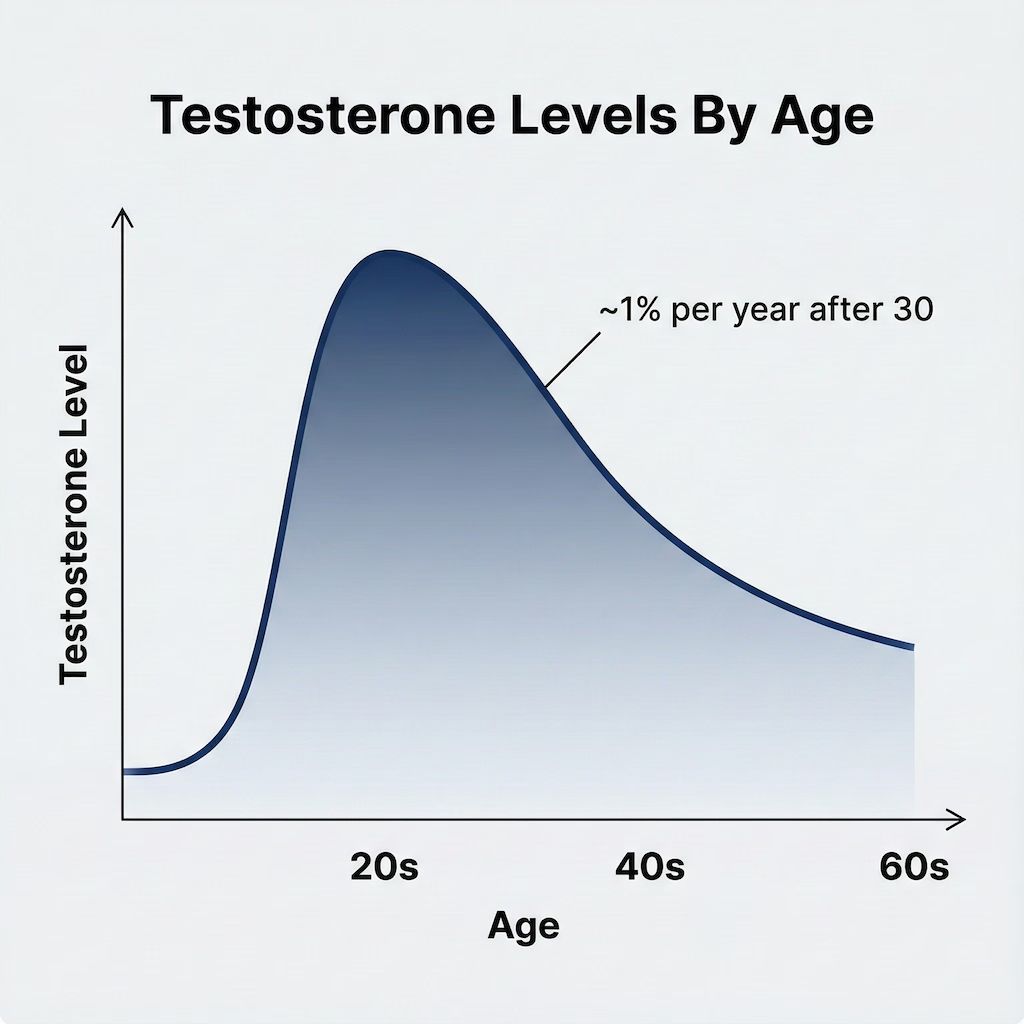Key takeaways:
- Protein plays a crucial role in testosterone production.
- Different sources of protein have varying effects on testosterone levels, with animal-based proteins generally considered superior.
- Protein intake has numerous benefits beyond muscle growth, including cell repair, bone health, and immune system support.
If you’re a fan of the keto or Atkins diet, or you love your post-workout protein shake, you may be worried if you’ve come across articles like this one claiming high-protein diets lead to low testosterone levels. But there are many complexities you should know about before you start cutting protein, and many myths in general about how this powerful macronutrient affects your health.
To set the record straight, we’re going to explain how protein actually increases testosterone, what opposing studies leave out, and how much protein you should be consuming for optimal hormonal and overall health.
How diet impacts your testosterone
Diet plays a crucial role in testosterone production. Before we talk about how protein impacts testosterone, we have to talk about fat and carbohydrates. Some research has called dietary fat the “backbone for steroid hormone production,” in part because one of its components, cholesterol, is a building block for testosterone. But this isn’t a free pass to follow a high-fat diet. In fact, a large cross-sectional study exploring the relationship between male fertility and dietary fat intake found that increased total dietary fat, specifically saturated fat, was associated with lower sperm quality and low testosterone synthesis. The researchers suggest that fat should be consumed in moderation. Dr Cam, CEO of Maximus, suggests fats should make up somewhere between30-45% of your diet, depending if you’re aiming to lose or maintain weight.
Carbohydrates are our main source of energy and also necessary for optimal testosterone production. But, like fat, they should only be consumed moderately, and take up even less of your diet, at around 5-20%. Some research suggests low-carbohydrate diets may increase testosterone and improve erectile function in men with low testosterone and metabolic syndrome, but more research is needed. Of course you also want to remember that low carb doesn’t mean no carb. While a low-carb diet may be especially beneficial for men who are overweight or obese (closely linked to metabolic syndrome), for men who are healthy and active, a diet too low in carbohydrates may lead to increased cortisol levels and decreased free testosterone (the type of testosterone that is unbound and free for use in your body), reiterating the importance of a balanced diet.
But what about protein? Ideally, it should make up around 50% of your caloric intake.
Let’s dive into some of the myths vs. facts around protein and testosterone:
When you hear people claim that high-protein diets cause low testosterone, they often point to studies like this one from 1985, which suggests a correlation between high protein and low testosterone. But the nutritionist/dietician and molecular biologist Lucas Tafur points out some interesting holes and misinterpretations in this and other related studies in his piece “Is a high protein diet bad for testosterone levels?” over at Medium, which brings us to the first myth around protein and testosterone:
Myth #1: Protein lowers testosterone.
Fact: The relationship between protein and testosterone is complex.
As Tafur explains, in the 1985 study, all subjects seemed to have followed a mixed diet of 20% protein, 56% carbohydrates, 23% fat, which means researchers did not compare a high-protein diet to a low-protein diet, or make any dietary adjustments at all. While researchers in the study did find a correlation between high protein intake and lower testosterone levels, Tafur is right to point out that correlation does not necessarily mean causation. Additionally, the study had a very small sample size, with just 12 subjects.
The study also included one “outlier” with very low testosterone levels to begin with; if you remove this subject, the correlation no longer exists, Tafur points out. Additionally, Tafur notes that a person eating nearly the same proportion of protein (28%) as the outlier with very low testosterone levels (33%) had testosterone levels that were higher or the same as four other people eating less than 20% of their calories as protein. To top it off, the study did not measure free testosterone levels, which is a more accurate indicator of clinically low testosterone.
In a more recent systematic review and meta-analysis, researchers suggested again that high-protein diets decrease testosterone. However, “high protein” in this research was very high at over 3.4 grams of protein for every kilogram of body weight each day, which is roughly 1.5 grams of protein for every pound of body weight. A more feasible recommendation is to consume at least 0.82 grams of protein per pound of body weight, which is the amount Maximus suggests.
After all, there seem to be more reasons to include a lot of protein in your diet than to leave it out. Studies show that following a low-protein diet can lead to a decline in testosterone levels and contribute to infertility. Eating adequate protein is also a great way to maintain a healthy weight and improve muscle mass.
Myth #2: Protein = meat (and only meat).
Fact: Protein comes in many forms. Beans, legumes, seeds, nuts, quinoa, leafy greens, whole grains, milk, whey, and eggs are all protein sources. Vegetarians and vegans can still consume protein, but here’s the hard truth about animal-based protein (including animal byproducts like eggs and dairy): they’re complete proteins, which means they contain all of the essential amino acids our bodies require. There are 20 of these amino acids, and our bodies only make 11 on their own, which means we must get the other nine from food. Very few plant-based foods are complete proteins, although they do exist. Quinoa and buckwheat are a couple of examples.
Myth #3: All types of protein are beneficial for testosterone.
Fact: If you eat soy protein to avoid animal protein, you may be doing a disservice to your testosterone levels. Soy contains a high amount of isoflavones, which are a type of plant estrogen (phytoestrogen) that function similarly to human estrogen. Unsurprisingly, some research suggests that consuming soy may lead to decreases in testosterone.
You may also be doing a disservice to your muscles. In a study comparing whey (an animal protein) to soy during resistance training, daily supplementation with whey led to greater gains in lean body mass.
Myth #4: Too much protein is bad for your kidneys.
Fact: While it’s true that consuming too much protein can worsen kidney function in people with kidney disease, there is not enough evidence to prove that a high-protein diet is dangerous for healthy individuals. In fact, researchers have pointed out that a high protein diet has more advantages than harms for people with healthy kidneys.
Myth #5: Lean protein is the best protein.
Fact: Not necessarily. As we mentioned earlier, dietary fat is necessary for optimal testosterone production, and lean protein is generally low in fat. Of course, you don’t want to overdo it on fat and put your heart health at risk. High-quality red meat like grass-fed beef is more nutritious than low-quality red meat such as grain-fed beef. Not only does it contain less saturated fat, but research shows it’s higher in antioxidants and precursors for vitamins A and E.
Myth #6: Protein bars are good for you.
Fact: Most protein bars are glorified candy bars. They often contain excess sugar, saturated and trans fats, sodium, artificial additives, and highly processed ingredients. Along with many protein powders and shakes, they should be approached with caution and not serve as a replacement for protein-rich foods.
Myth #7: Protein is only beneficial for muscle growth.
Fact: It’s true that including protein in your diet does wonders for your muscles, but there are many more benefits you should know about. Your body needs protein to make and repair cells and tissue, and it strengthens your immune system, among many other benefits.
Read more about which foods you should include (and avoid) in your diet for optimal testosterone production.
Disclaimer: The contents of this article, including, but not limited to, text, graphics, images, and other information, is for information purposes only and does not constitute medical advice. The information contained herein is not a substitute for and should never be relied upon for professional medical advice. The content is not meant to be complete or exhaustive or to be applicable to any specific individual's medical condition. You should consult a licensed healthcare professional before starting any health protocol and seek the advice of your physician or other medical professional if you have questions or concerns about a medical condition. Always talk to your doctor about the risks and benefits of any treatment. Never disregard or delay seeking professional medical advice or treatment because of something you have read on this site. Maximus does not recommend, endorse, or make any representation about the efficacy, appropriateness, or suitability of any specific test, products, procedures, treatments, services, opinions, healthcare providers or other information contained herein. Maximus is not responsible for, nor will they bear any liability for, the content provided herein or any actions or outcomes resulting from or related to its use.





